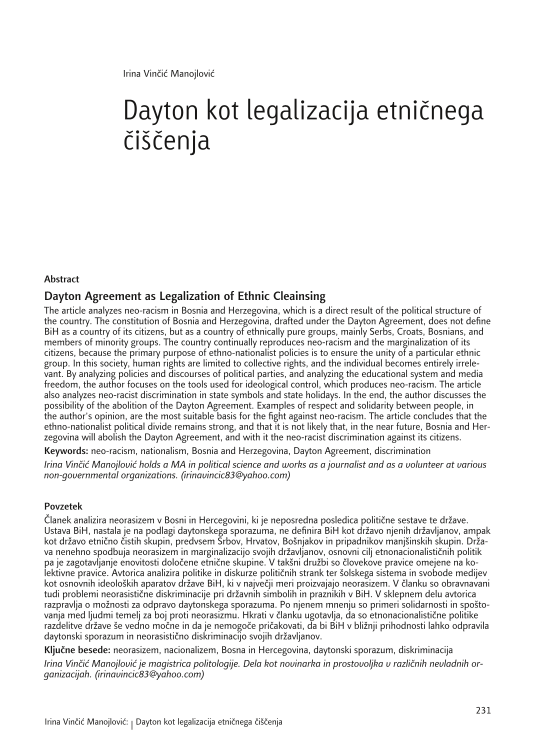The article analyzes neo-racism in Bosnia and Herzegovina, which is a direct result of the political structure of the country. The constitution of Bosnia and Herzegovina, drafted under the Dayton Agreement, does not define BiH as a country of its citizens, but as a country of ethnically pure groups, mainly Serbs, Croats, Bosnians, and members of minority groups. The country continually reproduces neo-racism and the marginalization of its citizens, because the primary purpose of ethno-nationalist policies is to ensure the unity of a particular ethnic group. In this society, human rights are limited to collective rights, and the individual becomes entirely irrelevant. By analyzing policies and discourses of political parties, and analyzing the educational system and media freedom, the author focuses on the tools used for ideological control, which produces neo-racism. The article also analyzes neo-racist discrimination in state symbols and state holidays. In the end, the author discusses the possibility of the abolition of the Dayton Agreement. Examples of respect and solidarity between people, in the author's opinion, are the most suitable basis for the fight against neo-racism. The article concludes that the ethno-nationalist political divide remains strong, and that it is not likely that, in the near future, Bosnia and Herzegovina will abolish the Dayton Agreement, and with it the neo-racist discrimination against its citizens.




